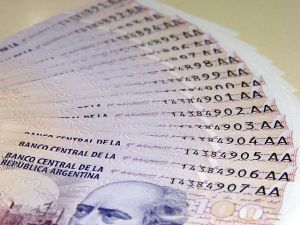Default in the Pampas
Argentina’s debt default is an event years in the making. In 2005, then Argentine President Nestor Kirchner started a process of debt restructuring in order to pay the USD93 billion of sovereign bonds defaulted in 2002, during the country’s depression. Mr. Kirchner was able to take out of default 76% of the bondholders. In 2010, Mr. Kirchner’s successor, Cristina Fernandez de Kirchner, increased the number of bondholders out of default to 93%. All of these bondholders agreed to a return lower than the bond’s face value. However the remaining 7% of bondholders, which included hedge fund NML Capital Limited, did not accept Argentina’s deals, turning this case into a holdout. Because foreign bondholders did not trust Argentine courts, all bond deals were made on United States courts, a process that Argentina has passed as law since 1976.

This led the 7% of bondholders that did not agree with Argentina’s deals to sue Argentina in a New York State court, asking the country to repay their bonds on full face value. On 2012, US judge Thomas Griesa ruled in favor of the holdouts, ordering Argentina to pay all of the bondholders at full face value, citing the “pari passu” bond provision that requires all bondholders to be treated equally. This meant that Argentina was now facing the possibility of paying USD1.3 billion, rather than the USD539 million they previously agreed upon in 2010. Judge Griesa gave Argentina until July 30 of this year to pay USD 1.3 billion to the creditors, but the Argentine government refused to, claiming this was “judicial malpractice”. As a result, Standard and Poor’s immediately tagged Argentina as a state in “selective default”.
What makes this case interesting is that Argentina has the means to pay the creditors, which would effectively place the country out of default. However, this reluctance to pay up has been interpreted by some as a political move by Mrs. Kirchner. "After a default, they [the Argentine government] can blame their troubles on those nasty international markets and U.S. courts, when in fact these problems are all self-generated", states Robert Kahn, a senior fellow at the Council on Foreign Relations. The “vulture funds” that are holding the country in default are now targets in pro-government rallies, and there have been instances of American flags burning in the streets. Mrs. Kirchner has even decided to bring this case towards the International Court of Justice in The Hague, hoping to negate the 2012 case decision by Judge Thomas Griesa. Tensions between the Argentine and US governments are high, and Mrs. Kirchner seems to have no intention to mellow them out. In a televised speech last week, Mrs. Kirchner stated that “ If something were to happen to me, do not look East (referring to supposed death threats by ISIS), rather look North.”
Argentina’s default has clearly hadan impact in its economy. While the official peso to dollar rate has increased very little two months since the default, (8.22 pesos to a dollar to 8.43) its black market counterpart (dubbed the “dollar blue”) has significantly increased, from 12.80 pesos to a dollar to 15.80. Before the default, the dollar blue had been stable at 11 pesos to a dollar. Once the country entered a default, the dollar blue had an 86% rise in its rate. Despite this grim outlook, the Argentine government insists that the economy is growing at a steady rate. On September 24th the national statistics agency announced an economic growth of 0.9%, whereas private economical statistic agencies tell about a 0.4% economic contraction.
Because of the difficulty of obtaining dollars, and because of the economic contraction Argentina is going through, foreign investment in Argentina looks less appealing than ever. Not to mention that politically, the country’s ruling politicians are steadily blaming foreigners for all of their woes. However, things could change in Argentina in the next year, as the country faces elections. Although the ruling Frente Por la Victoria party has not yet announced its candidate, it can be expected that its candidate will closely follow Mrs. Kirchner’s policies. The solution to this default problem is surprisingly simple, yet its damage has already taken effect. Next year will prove to be of utmost importance to the Argentine economy, and its development will rest on decisions taken by either Mrs. Kirchner’s successor or by a new party.
